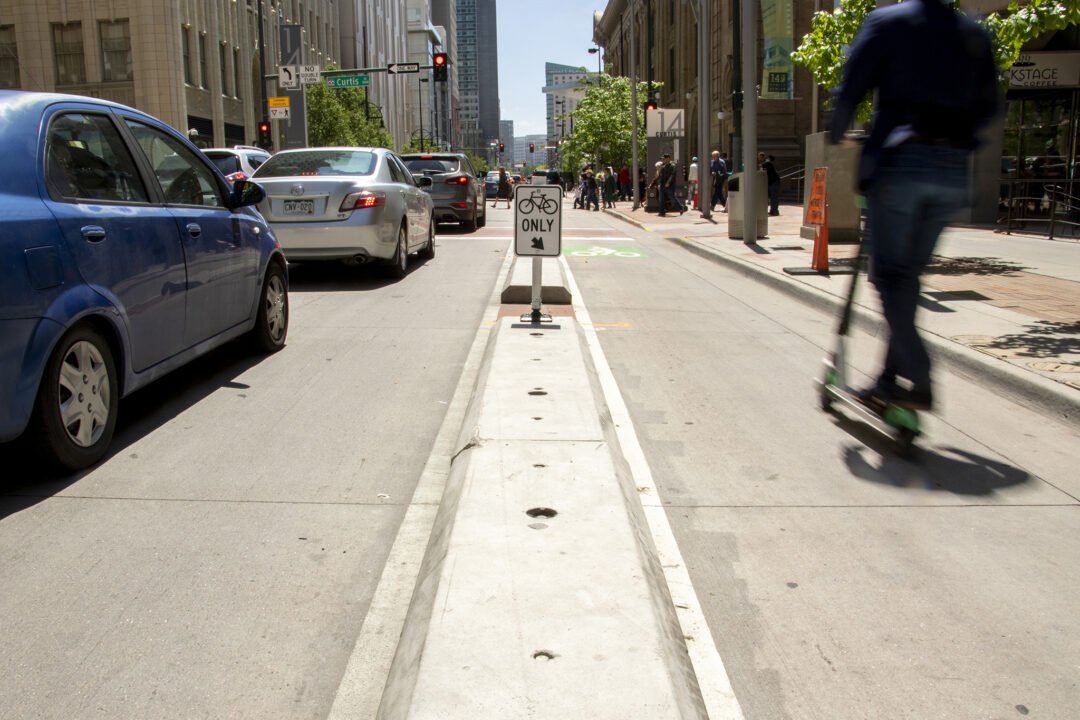Does it matter?
By David Sachs
UPDATE: The Denver City Council’s transportation committee delayed any decision on the licenses, choosing to take up the conversation again on April 27.
Last week, Denver’s transportation department tapped Lyft and Lime to replace Denver B-cycle and streamline the city’s network of electric scooters. And while the companies offer a popular way to replace pollutive car trips with cleaner ones, the agreement they’re trying to finalize with the city is raising questions about long-term sustainability and the use of public streets for private profit.
Unlike the deal Denver had with B-cycle, the city’s original bike-share nonprofit, Denverites would not play a role in funding what amounts to a micro-transit system.
“The benefit, much like RTD, is that the people have direct influence over the model and its success,” said City Councilmember Chris Hinds, referencing the region’s transit system. “Surrendering a public good to private companies can be difficult … so I’m just a little concerned about moving a public good into a fully private sphere.”
Micro-mobility companies currently pay for a permit to operate in the city. But, should the Denver City Council approve their licenses, Lyft and Lime won’t pay cash for the right to release their fleets of up to 3,000 scooters and 600 bikes onto city streets. It’s a “public-private partnership” agreement, which Denver’s government is fond of, for better or for worse.
Read the full story at Denverite
